BBC Afghan service
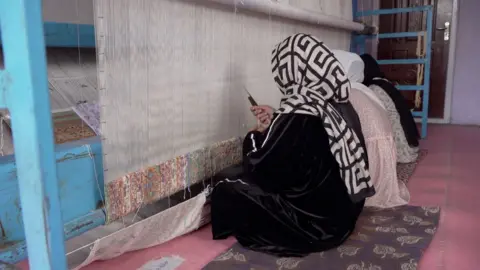 BBC
BBCIn a workshop in Kabul where rugs are manufactured, hundreds of women and girls work in a herd space, the thick and drowning air.
Among them is Salehe Hassani, 19. « Girls no longer have the opportunity to study, » he says with a faller smile. « Circumstances have taken it out of us, so we headed to the workshop. »
Since the Taliban took power in 2021, girls over the age of 12 have been banned for education and women of many jobs.
By 2020, only 19% of women were part of the workforce, four times less than men. This number has dropped further under the Taliban domain.
The lack of opportunity, together with the terrible economic situation facing the country, has pushed many long and laborious days of carpet fabric: one of the few offices that the Taliban government allows women to work.
According to the UN, the livelihood of about 1.2 to 1.5 million Afghans depend on the carpet fabric industry, with women who represent almost 90% of the labor force.
In an economy that The UN warned in a 2024 report It had been « basically » collapsed since the Taliban took energy, the rug export business is booming.
The Ministry of Industry and Commerce said that in the first six months of 2024, more than 2.4 million kilograms of rugs (worth $ 8.7 million (£ 6.6)) were exported to countries such as Pakistan, India, Austria and the United States.
But this has not necessarily meant a better salary for weavers. Some of the BBC said they said they had not seen any benefit from a piece sold in Kazakhstan last year that he obtained $ 18,000.
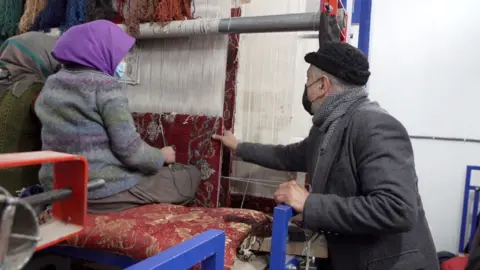
In Afghanistan, rugs are sold much less: between $ 100 and $ 150 per square meter. Needing money to help support their families and have little job options, workers are trapped in poorly remuneration.
Carpet weavers say they earn about $ 27 for each square meter, which usually takes about a month to produce. This is less than one dollar a day despite the long exhausting changes that often extend to 10 or 12 hours.
Nisar Ahmad Hassieni, chief of the company Elmak BAFT, who let the BBC enter his workshops, said he pays his employees between 39 and $ 42 per square meter. He said they are paid every two weeks, with an eight -hour working day.
The Taliban have repeatedly said that girls will be able to return to school once their concerns are resolved, such as the alignment of the curriculum with Islamic values, but so far no specific steps have been taken to take it.
Hassieni said that after the boom of the Taliban government, his organization made his mission to support those leaving the closures.
« We set three workshops for carpet fabric and wool spinning, » he says.
« About 50-60% of these rugs are exported to Pakistan, while the rest are sent to China, the USA, Turkey, France and Russia to meet client demand. »
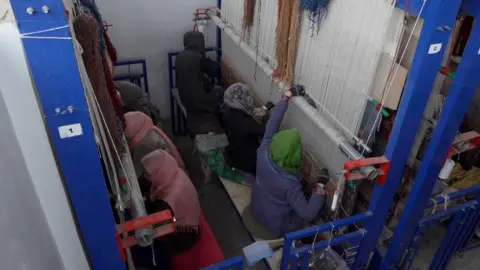
22 -year -old Shakila makes rugs with his sisters in one of the modest rental rooms they also share with their older parents and three brothers. They live in the impoverished area of Dashht-e Barchi, on the western outskirts of Kabul.
He once had dreams of becoming a lawyer, but now leads the operation of his family’s rugs.
« We couldn’t do anything else, » Shakila tells me. « There was no other job. »
She tells how her father taught him how to weave when he was 10 years old and he recovered from a car accident.
What began as a necessary skill in difficult times has become the family lifestyle.
Shakila’s sister, Samira, 18, aspired to be a journalist. Mariam, 13, was forced to stop going to school before he could even start dreaming of a career.
Before the Taliban’s return, all three were students of the Sayed al-shuhada High School.
Their lives were forever altered after the bombings at school in 2021 killed 90 people, most of them young girls and left almost 300 injured.
The previous government blamed the Taliban of the attack, although the group denied any participation.
Templing another tragedy, his father made the decision to remove them from school.
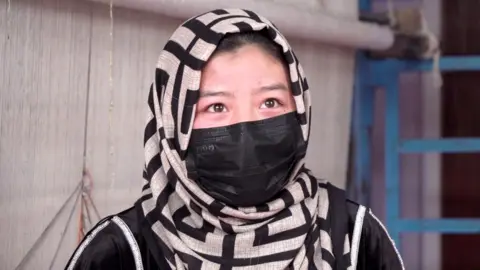
Samira, who was at school when the attacks took place, has been traumatized, talking to a stuttering and struggling to express. However, he says he would do anything to return to formal education.
« I really wanted to finish my studies, » he says. « Now that the Taliban are in power, the security situation has improved and there have been less suicide bombings.
« But schools are still closed. That’s why we have to work. »
Despite the low remuneration and the long hours of work these women have, the spirits of some are uninterrupted.
Back in one of the workshops, Salehe, determined and hopeful, trusted that he had been studying English for the last three years.
« Although schools and universities are closed, we refuse to stop our education, » he says.
One day, Salehe adds, he plans to become a leading doctor and build the best hospital in Afghanistan.

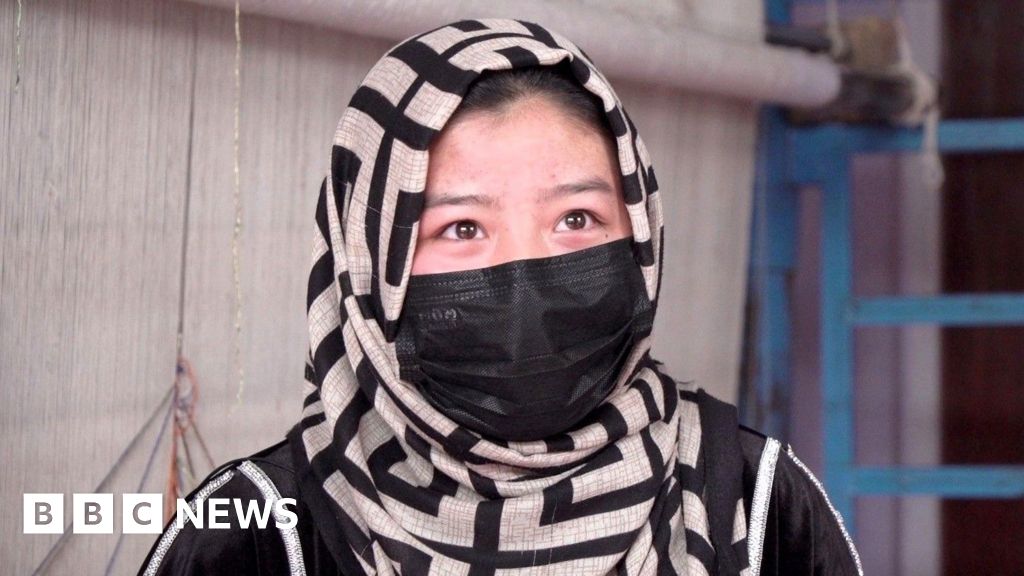











Leave a Reply